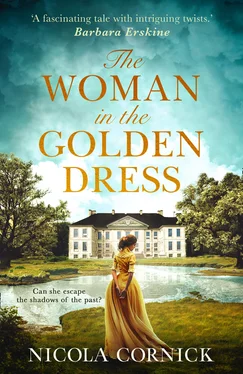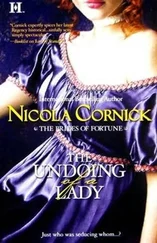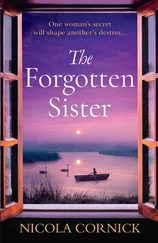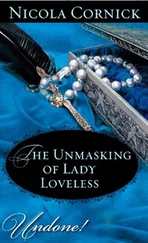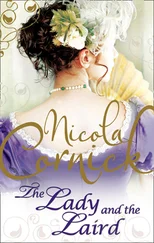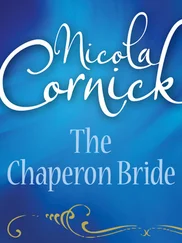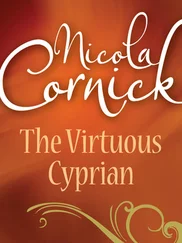
International bestselling author NICOLA CORNICKbecame fascinated with history when she was a child, and spent hours poring over historical novels and watching costume dramas. She studied history at university and wrote her master’s thesis on heroes. Nicola also acts as a historical advisor for television and radio. In her spare time she works as a guide in a seventeenth-century mansion.
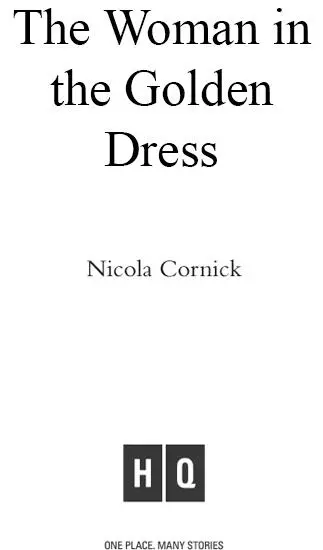
Copyright Copyright Dedication Epigraph Prologue Chapter 1 Chapter 2 Chapter 3 Chapter 4 Chapter 5 Chapter 6 Chapter 7 Chapter 8 Chapter 9 Chapter 10 Chapter 11 Chapter 12 Chapter 13 Chapter 14 Chapter 15 Chapter 16 Chapter 17 Chapter 18 Chapter 19 Chapter 20 Chapter 21 Chapter 22 Chapter 23 Chapter 24 Chapter 25 Chapter 26 Epilogue Author’s Note Acknowledgements Extract from The Last Daughter About the Publisher

An imprint of HarperCollins Publishers Ltd
1 London Bridge Street
London SE1 9GF
First published in Great Britain by HQ in 2019 as The Woman in the Lake
Copyright © Nicola Cornick 2019
Nicola Cornick asserts the moral right to be identified as the author of this work.
A catalogue record for this book is available from the British Library.
This novel is entirely a work of fiction. The names, characters and incidents portrayed in it are the work of the author’s imagination. Any resemblance to actual persons, living or dead, events or localities is entirely coincidental.
All rights reserved under International and Pan-American Copyright Conventions. By payment of the required fees, you have been granted the non-exclusive, non-transferable right to access and read the text of this e-book on-screen. No part of this text may be reproduced, transmitted, downloaded, decompiled, reverse engineered, or stored in or introduced into any information storage and retrieval system, in any form or by any means, whether electronic or mechanical, now known or hereinafter invented, without the express written permission of HarperCollins.
Ebook Edition © March 2019 ISBN: 9781474064712
This Edition: 2019-11-26
For Julia, a Swindon girl
Time flies over us, but leaves its shadow behind.
NATHANIEL HAWTHORNE
Contents
Cover
About the Author International bestselling author NICOLA CORNICK became fascinated with history when she was a child, and spent hours poring over historical novels and watching costume dramas. She studied history at university and wrote her master’s thesis on heroes. Nicola also acts as a historical advisor for television and radio. In her spare time she works as a guide in a seventeenth-century mansion.
Title Page
Copyright
Dedication
Epigraph
Prologue
Chapter 1
Chapter 2
Chapter 3
Chapter 4
Chapter 5
Chapter 6
Chapter 7
Chapter 8
Chapter 9
Chapter 10
Chapter 11
Chapter 12
Chapter 13
Chapter 14
Chapter 15
Chapter 16
Chapter 17
Chapter 18
Chapter 19
Chapter 20
Chapter 21
Chapter 22
Chapter 23
Chapter 24
Chapter 25
Chapter 26
Epilogue
Author’s Note
Acknowledgements
Extract from The Last Daughter
About the Publisher
Prologue

Eustace
April 1765
I know what they will say of me when I am dead. I will be cast as a madman and a fool. They will blame the divorce, so scandalous for a peer of the realm, and claim that it drove me to misery and delusion, that it turned my mind. They will rake up all the old gossip and call my wife a whore.
It pleases me that society will slander Isabella over again. I will gladly tolerate being painted a cuckold and a weakling if it hurts her. I wish I could hurt her more but she is beyond my reach now, more is the pity.
There are those who call me a wicked man. They are wrong. True evil requires intent and I never had the will or the cunning to be truly wicked. Only once was I tempted to commit murder and even then it was not my fault, for I swear I was possessed. It was the golden gown that moved me to evil and the gown that led to that most terrible mistake.
I remember the horror of it to this day. I still see the scene so clear before my eyes. She was walking ahead of me, through the dappled moonlight, and I recognised the gown and hastened my step. I swear I had no fixed intention, no thought of murder, not at that moment. I wanted to talk, to reason with her. Then, on the path by the mill, she seemed to stumble and fall and all of a sudden I was seized by the thought that this was my chance to be rid of the threat for ever. I could not bring myself to touch her directly so I nudged her body with my boot and she rolled gently, so gently, over the edge and into the pool.
I see it all again: the silver moon swimming beneath the water and the golden gown billowing out about her like a shroud slowly unfurling. I needed to claim that gown but my fear made me clumsy and I ripped it from her body when it would not yield to my hands. And then…
I break out into a cold sweat whenever I remember. Everything is so vivid. The sweet scent of lime blossom mingled with the stink of dank weed from the millpond, the endless roar of the water over the sluice like the rush to bedlam.
And then… The body rolled over in the water and I saw her properly for the first time in the moon’s reflected glow. It was not the face of my nemesis. I stood there with the gown dripping in my hands and then I was sick; sick with revulsion, sick with fear, sick with disappointment.
Binks came upon me as I knelt there, retching up my guts.
‘I will attend to this, Lord Gerard,’ he said, as though he were my butler tidying away a glass of spilt wine. ‘You should have left it with me, as we agreed.’
Binks was a damned impertinent fellow but a useful one and I was not going to argue with him. I took my carriage back to Lydiard House and I sat here in my study and drank more than I had ever taken before. I was out cold for three days.
When I came to my senses the first thing I saw was the golden gown draped across the end of my bed like a reproachful ghost. I wanted to be rid of it, to burn it, rip it to shreds or give it to the first beggar woman I saw but at the same time I was too afraid; afraid that somehow, some day, it would return to haunt me. My only safety lay in keeping it close to me. Wherever I went the gown came with me, wrapped up tightly, hidden away to contain its poison, but with me all the same. And that is how it haunted me for ever after. That is how it has possessed me, in mind and body.
I have no notion what happened after I left Binks to do the work that I dared not do. I heard reports of the tragedy of course, for the servants were full of the story and it was in all the local newspapers. It was a famous scandal that respected Swindon banker and businessman Samuel Lawrence had drowned his wife in the millpond and then apparently taken his own life, following her down into those dark waters.
Читать дальше
